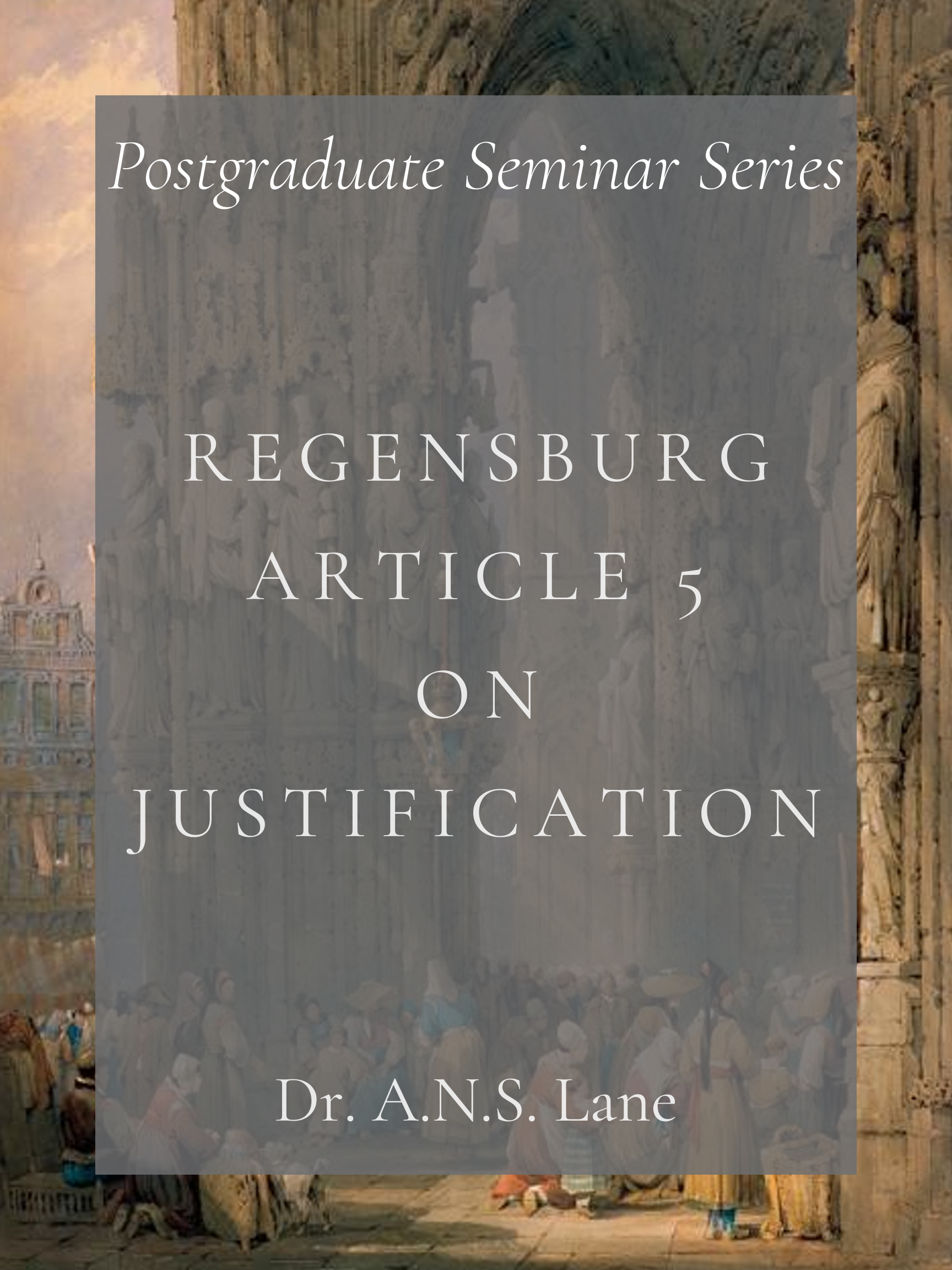Regensburg Article 5 on Justification
In 1541 leading Catholic and Protestant negotiators agreed a brief statement on justification by faith — Article 5 of the Regensburg Colloquy. Luther described it as a inconsistent patchwork of contradictory ideas. Calvin stated that it contained the substance of true doctrine. Both views have been held ever since. This presentation, drawing on my newly published book of the same title, will argue strongly for Calvin’s assessment. It does so by examining carefully the views expressed at the time by the participants and other interested parties. Article 5 fell from favour because of misrepresentations of its teaching and because what was being sought was not agreement on one point only but agreement across the board, which of course did not happen.
In 1541 leading Catholic and Protestant negotiators agreed a brief statement on justification by faith — Article 5 of the Regensburg Colloquy. Luther described it as a inconsistent patchwork of contradictory ideas. Calvin stated that it contained the substance of true doctrine. Both views have been held ever since. This presentation, drawing on my newly published book of the same title, will argue strongly for Calvin’s assessment. It does so by examining carefully the views expressed at the time by the participants and other interested parties. Article 5 fell from favour because of misrepresentations of its teaching and because what was being sought was not agreement on one point only but agreement across the board, which of course did not happen.
In 1541 leading Catholic and Protestant negotiators agreed a brief statement on justification by faith — Article 5 of the Regensburg Colloquy. Luther described it as a inconsistent patchwork of contradictory ideas. Calvin stated that it contained the substance of true doctrine. Both views have been held ever since. This presentation, drawing on my newly published book of the same title, will argue strongly for Calvin’s assessment. It does so by examining carefully the views expressed at the time by the participants and other interested parties. Article 5 fell from favour because of misrepresentations of its teaching and because what was being sought was not agreement on one point only but agreement across the board, which of course did not happen.


